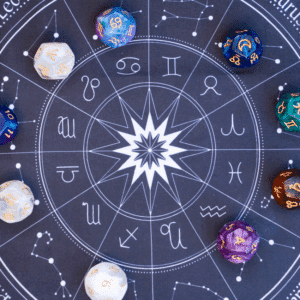Similar: Chinese Zodiac, Karma, Ouija, Oracle
Mythology comes from the Greek words mythos, which means the story of the people, and logos, which means words or speech. Essentially, mythology translates to the spoken word or story of the people. Myths originate in the oral tradition. Over the years, myths have morphed to have different meanings and elements based on the era and storyteller (it’s almost like a game of telephone with morals).
Myths should not be confused with legends. Myths can be (and usually are) totally fabricated, while legends typically have some root in factual people or events.
Mythology is the study of the stories which explain the culture, beliefs, and other events of a particular group of people. These folk tales often explain how the world came into being, what happens to the Sun after it sets, etc. Symbolism is significant in mythology. For example, something as simple as lightning can take on a whole new meaning in a person’s life after hearings a tale about Zeus.
Often myths deal with real elements of human life and condition, transported into an exciting tale filled with lessons that should be passed on to the next generation. They’re precious insights into different cultures, and they’re also relevant when it comes to an understanding the human psyche.
Beyond the gods that make regular appearances in popular myth lore, many supernatural beings that still exist in our culture (like mermaids or nymphs) come from passed down oral tales.
Discover the myth: Which Greek God is Your Zodiac Sign.
An example: The Epic of Gilgamesh is considered one of the world’s oldest known myths/epic poems. This tale came from ancient Mesopotamia and was a series of short stories passed down through the oral tradition and was eventually engraved in the Akkadian language on the Deluge clay tablet. This is where it was rediscovered in modern times.



